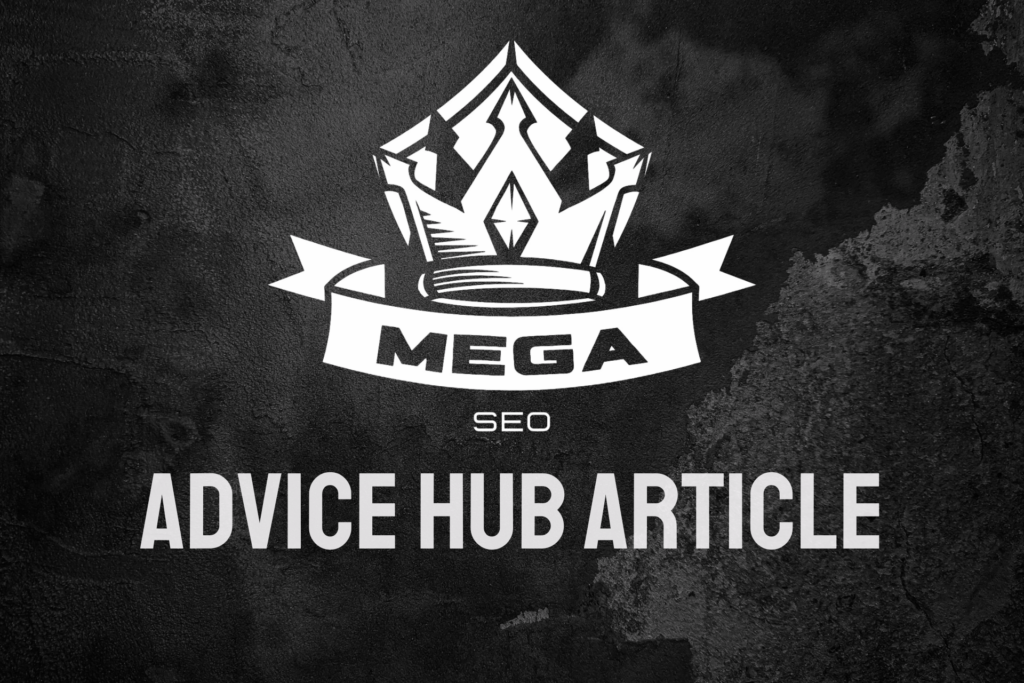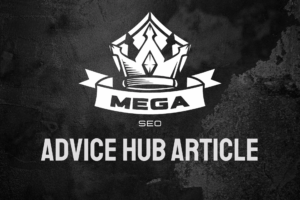Google penalties can significantly impact a website’s visibility and organic traffic, causing severe setbacks for businesses relying on search engine traffic. Understanding how to recover from these penalties is essential for maintaining a strong online presence. This comprehensive guide will explore the various types of Google penalties, how to identify them, and provide actionable steps to recover and prevent future issues.
What Are Google Penalties?
Google penalties are actions taken by the search engine to lower a website’s rankings or remove it from search results entirely. These penalties can be either algorithmic or manual, each requiring different approaches for recovery.
Algorithmic penalties occur automatically when Google’s algorithms detect violations of their webmaster guidelines. These can be triggered by various factors, including low-quality content, over-optimisation, or unnatural link profiles. Manual penalties, on the other hand, are imposed by Google’s human reviewers after a thorough examination of a website. These are often more severe and require direct action from the website owner to resolve.
How Do You Know If You’ve Been Penalised?
Identifying a Google penalty is the first step towards recovery. Here are some telltale signs that your website might have been penalised:
- Sudden drop in organic traffic
- Significant decrease in keyword rankings
- Pages disappearing from search results
- Manual action notice in Google Search Console
- Decrease in indexed pages
- Loss of featured snippets or rich results
It’s important to note that not all traffic drops are due to penalties. Algorithm updates, technical issues, or increased competition can also cause fluctuations in traffic and rankings. Therefore, it’s crucial to analyse your data carefully and consider multiple factors before concluding that you’ve been penalised.
Common Types of Google Penalties
Understanding the different types of penalties can help you pinpoint the issue and take appropriate action. Here are some of the most common Google penalties:
Thin Content Penalty
This penalty targets websites with low-quality or sparse content that provides little value to users. To avoid this penalty, focus on creating comprehensive, informative content that addresses user intent. Consider implementing a content audit strategy to identify and improve or remove thin content pages.
Unnatural Links Penalty
Google penalises websites with manipulative link-building practices, such as buying links or participating in link schemes. Building high-quality, natural backlinks is essential for avoiding this penalty. Regularly monitor your backlink profile and disavow any suspicious or low-quality links.
Keyword Stuffing Penalty
Overusing keywords in an attempt to manipulate rankings can result in a penalty. Instead, focus on creating natural, reader-friendly content that incorporates keywords organically. Use semantic variations and related terms to provide context and depth to your content.
Cloaking and Sneaky Redirects Penalty
Showing different content to search engines and users, or using deceptive redirects, can lead to severe penalties. Always ensure that your website is transparent and consistent for both users and search engines. Regularly audit your website’s redirects and ensure they’re implemented correctly.
Steps to Recover from Google Penalties
Recovering from a Google penalty requires a systematic approach. Here’s a step-by-step guide to help you navigate the recovery process:
- Identify the Penalty: Use Google Search Console and analytics data to determine the type of penalty and its impact on your website. Look for specific dates when traffic or rankings dropped significantly.
- Conduct a Thorough Audit: Perform a comprehensive audit of your website to identify issues that may have triggered the penalty. This may include analysing your content, backlink profile, and technical SEO elements. Consider using professional SEO tools to assist with this process.
- Address the Issues: Based on your audit findings, take corrective actions to address the problems. This might involve removing low-quality content, disavowing spammy backlinks, or fixing technical issues. Be thorough and systematic in your approach.
- Document Your Actions: Keep a detailed record of all the changes and improvements you’ve made. This documentation will be crucial when submitting a reconsideration request. Include dates, specific actions taken, and the reasoning behind each change.
- Submit a Reconsideration Request: For manual penalties, submit a reconsideration request through Google Search Console. Clearly explain the steps you’ve taken to address the issues and your commitment to following Google’s guidelines in the future. Be honest, concise, and professional in your communication.
- Monitor and Maintain: After submitting your reconsideration request, closely monitor your website’s performance and continue to adhere to best practices to prevent future penalties. Set up alerts in Google Search Console and your analytics platform to catch any future issues early.
How Can You Prevent Future Google Penalties?
Prevention is always better than cure when it comes to Google penalties. Here are some best practices to help you avoid future penalties:
- Create High-Quality Content: Focus on producing valuable, original content that serves your users’ needs and aligns with search intent. Regularly update and improve your existing content to maintain its relevance and quality.
- Build Natural Backlinks: Earn backlinks through genuine outreach and creating link-worthy content rather than resorting to manipulative tactics. Focus on building relationships within your industry and contributing valuable insights to relevant discussions.
- Stay Updated with Google’s Guidelines: Regularly review and adhere to Google’s Webmaster Guidelines to ensure compliance with their policies. Subscribe to official Google blogs and channels to stay informed about updates and best practices.
- Conduct Regular Audits: Perform periodic SEO audits to identify and address potential issues before they escalate into penalties. Consider using professional SEO tools and services to assist with these audits.
- Implement Proper On-Page SEO: Ensure your website follows on-page SEO best practices, including proper use of headers, meta tags, and internal linking structures.
- Focus on User Experience: Prioritise user experience by improving site speed, mobile-friendliness, and overall usability. Regularly gather and act on user feedback to continually enhance your website’s performance.
- Diversify Your Traffic Sources: While organic search is important, don’t rely solely on Google. Explore other traffic sources like social media, email marketing, and paid advertising to reduce your vulnerability to penalties.
What Role Does Technical SEO Play in Penalty Recovery?
Technical SEO plays a crucial role in both preventing and recovering from Google penalties. Ensuring your website is technically sound can help you avoid issues that might trigger penalties and improve your overall search performance. Some key technical SEO aspects to focus on include:
- Site Speed Optimisation: Improve your website’s loading speed to enhance user experience and satisfy Google’s performance requirements. Regularly test and optimise your site’s speed using tools like Google PageSpeed Insights.
- Mobile-Friendliness: Ensure your website is fully responsive and provides a seamless experience across all devices. Use Google’s Mobile-Friendly Test tool to identify and address any mobile usability issues.
- XML Sitemap: Maintain an up-to-date XML sitemap to help search engines crawl and index your website effectively. Regularly update your sitemap as you add or remove pages from your site.
- Robots.txt File: Use the robots.txt file correctly to guide search engine crawlers and prevent indexing of non-essential pages. Regularly review and update this file to ensure it aligns with your current SEO strategy.
- Canonical Tags: Implement canonical tags to avoid duplicate content issues that could lead to penalties. Regularly audit your site for duplicate content and ensure canonical tags are correctly implemented.
For a more comprehensive understanding of technical SEO and its impact on your website’s performance, check out our technical SEO guide.
How Important Is Off-Page SEO in Penalty Recovery?
Off-page SEO, particularly link building, is often a significant factor in Google penalties. However, it’s also crucial for recovery and long-term SEO success. Here are some off-page SEO considerations for penalty recovery:
- Link Audit: Conduct a thorough backlink audit to identify and remove toxic or spammy links that may have contributed to the penalty. Use professional SEO tools to analyse your backlink profile in detail.
- Disavow Tool: Use Google’s Disavow Tool to request that Google ignore low-quality backlinks you can’t remove manually. Be cautious when using this tool and only disavow links that you’re confident are harmful.
- Brand Building: Focus on building your brand’s authority and reputation through genuine PR efforts and thought leadership. Engage in industry events, contribute to reputable publications, and build relationships with influencers in your niche.
- Social Signals: While not a direct ranking factor, social signals can indirectly impact your SEO by increasing brand awareness and driving traffic. Develop a strong social media strategy that aligns with your overall SEO goals.
Navigating Local SEO Penalties
For businesses targeting local customers, local SEO penalties can be particularly damaging. Here are some tips for recovering from and preventing local SEO penalties:
- Ensure NAP Consistency: Maintain consistent Name, Address, and Phone Number (NAP) information across all online directories and your Google Business Profile. Regularly audit your citations to ensure accuracy.
- Avoid Keyword Stuffing in Business Names: Use your actual business name in your Google Business Profile and avoid adding keywords unnaturally. Focus on providing accurate and helpful information to users.
- Manage Reviews Ethically: Encourage genuine customer reviews and avoid fake reviews or review gating practices. Respond promptly and professionally to all reviews, both positive and negative.
- Optimise for Local Keywords: Incorporate location-specific keywords naturally in your content and meta tags. Create location-specific pages if you serve multiple areas, ensuring each page provides unique and valuable content.
Partner with SEO Experts for Effective Penalty Recovery
Recovering from Google penalties can be a complex and time-consuming process. Partnering with experienced SEO professionals can help you navigate the recovery process more effectively and implement strategies to prevent future penalties.
At Mega SEO, we specialise in helping businesses recover from Google penalties and implement sustainable SEO strategies. Our team of experts, based in Wigan, can provide personalised guidance and support throughout the recovery process. We understand the unique challenges faced by businesses in the UK and tailor our approach to meet your specific needs.
Remember, recovering from a Google penalty is not just about fixing immediate issues — it’s about implementing long-term strategies that align with Google’s guidelines and best practices. By focusing on creating value for your users and maintaining a technically sound website, you can not only recover from penalties but also build a strong foundation for sustainable search engine success.
If you’re struggling with a Google penalty or want to ensure your website is fully optimised to avoid future issues, don’t hesitate to contact us. Our team is ready to help you navigate the complex world of SEO and achieve lasting success in search engine rankings.




